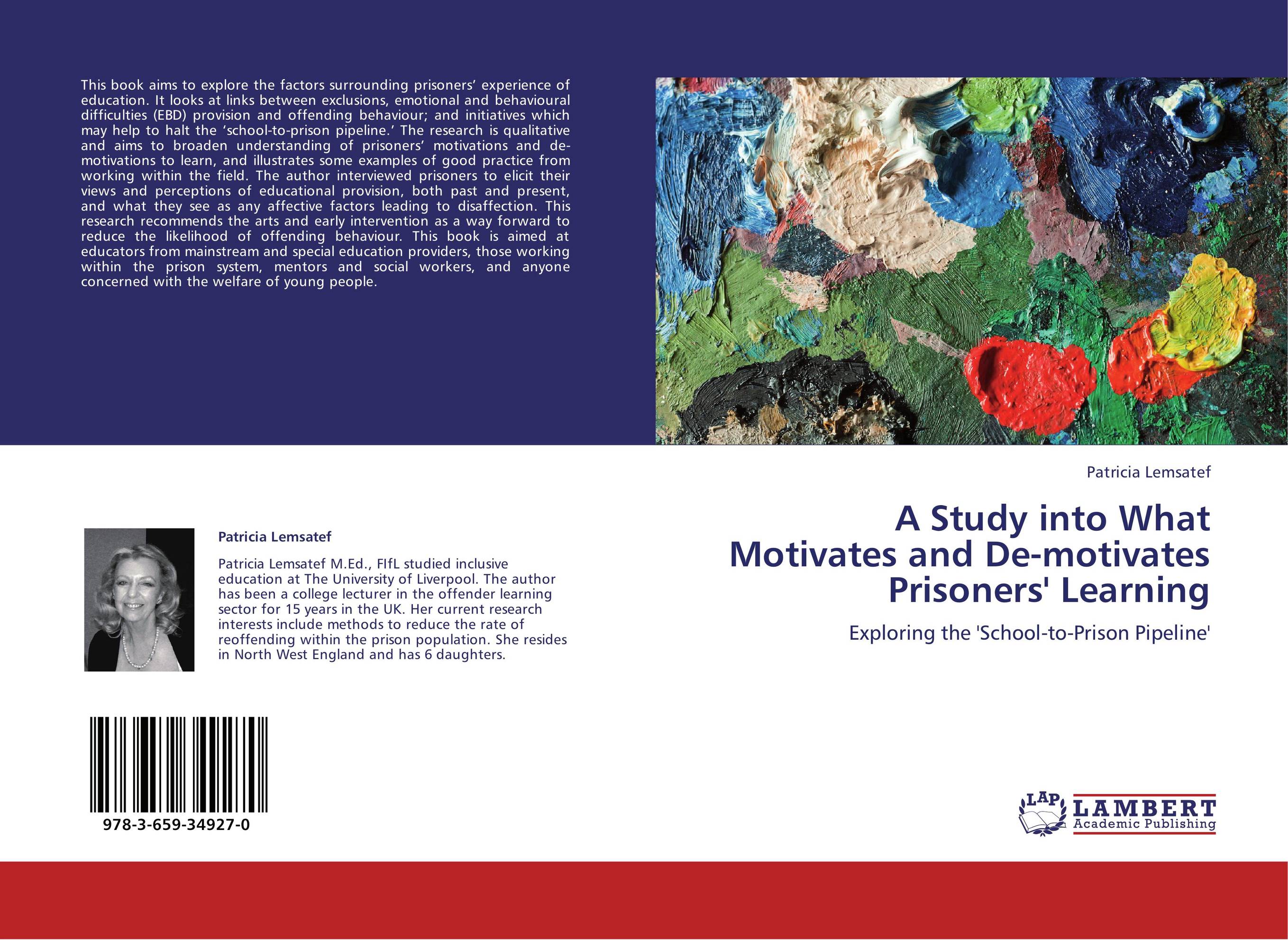| Поиск по каталогу |
|
(строгое соответствие)
|
- Профессиональная
- Научно-популярная
- Художественная
- Публицистика
- Детская
- Искусство
- Хобби, семья, дом
- Спорт
- Путеводители
- Блокноты, тетради, открытки
A Study into What Motivates and De-motivates Prisoners' Learning. Exploring the 'School-to-Prison Pipeline'

В наличии
| Местонахождение: Алматы | Состояние экземпляра: новый |

Бумажная
версия
версия
Автор: Patricia Lemsatef
ISBN: 9783659349270
Год издания: 2013
Формат книги: 60×90/16 (145×215 мм)
Количество страниц: 92
Издательство: LAP LAMBERT Academic Publishing
Цена: 31402 тг
Положить в корзину
Позиции в рубрикаторе
Сферы деятельности:Код товара: 120924
| Способы доставки в город Алматы * комплектация (срок до отгрузки) не более 2 рабочих дней |
| Самовывоз из города Алматы (пункты самовывоза партнёра CDEK) |
| Курьерская доставка CDEK из города Москва |
| Доставка Почтой России из города Москва |
Аннотация: This book aims to explore the factors surrounding prisoners’ experience of education. It looks at links between exclusions, emotional and behavioural difficulties (EBD) provision and offending behaviour; and initiatives which may help to halt the ‘school-to-prison pipeline.’ The research is qualitative and aims to broaden understanding of prisoners’ motivations and de-motivations to learn, and illustrates some examples of good practice from working within the field. The author interviewed prisoners to elicit their views and perceptions of educational provision, both past and present, and what they see as any affective factors leading to disaffection. This research recommends the arts and early intervention as a way forward to reduce the likelihood of offending behaviour. This book is aimed at educators from mainstream and special education providers, those working within the prison system, mentors and social workers, and anyone concerned with the welfare of young people.
Ключевые слова: inclusion, Intervention, teaching, behaviour, Art, Rehabilitation, Prison, Study, Education, Learning, offender, Correctional



